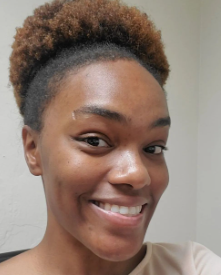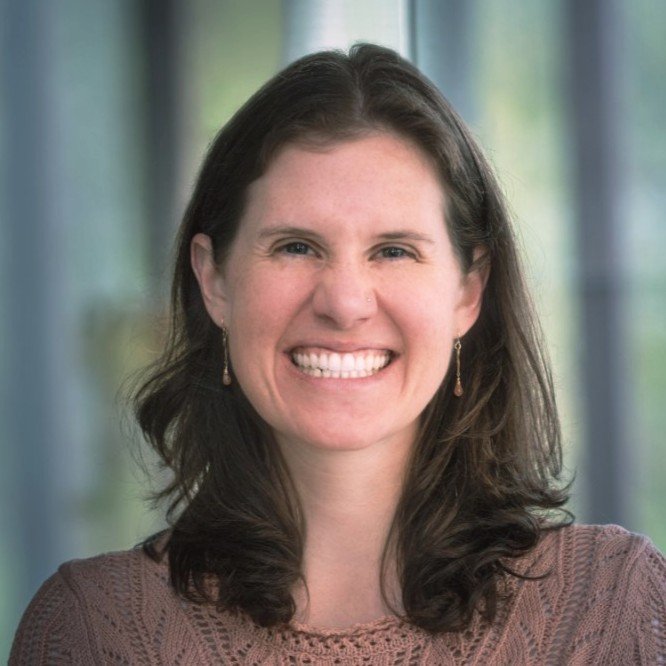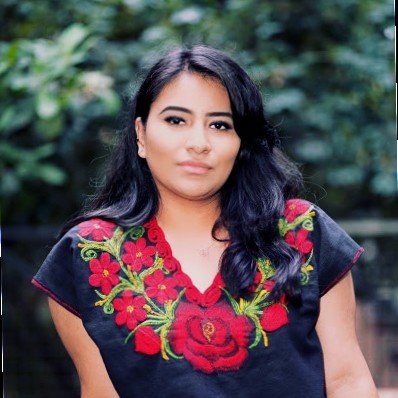Rayanna Tensley
Project Coordinator, Goodwill Inland NorthWest
Interview by Ellas Silvas & Machi Dima
November 8, 2022
Project Coordinator Rayanna Tensley of Goodwill Industries of the Inland Northwest spoke to us about the personal satisfaction she has gotten from designing a Digital Equity intervention from the ground up, as well as the importance of patience and collaboration at all levels of digital inclusion work— from teaching first-time computer users to building state-wide Digital Equity interventions. Tensley is based in Spokane on the eastern side of Washington state.
Q: What is your definition of Digital Equity?
RT: Digital equity to me just means that everyone has the opportunity to get online. When Covid happened, everything got shut down. Every in-person activity was canceled and it was really difficult for the population that Goodwill serves to understand what resources were still out there, what businesses were open, how to get online for their appointments, have access to the phone or telephone, or, you know, just stay connected.
Q: What motivates you? What are you passionate about in this space?
RT: What makes you passionate about the space is really making sure that everyone has the opportunity to be able to get online, to be able to find those resources and not only get online, but understand how to use the technology and their devices.
Q. What values and/or principles are important for everyone in this space to do good work?
RT: Patience for sure. We’re working with a lot of people that don’t know how to use the computer or feel fearful of the internet and what’s clicked on. They don’t want to break anything or they don’t want to be hacked. So, just patience and understanding for sure. And, it’s important to have a dedication and passion for the work and the people that you’re serving: to show up every day for them and make sure that they have the opportunity and the resources and assistance that need to pursue the goals that they have for their lives.
“It’s important to have a dedication and passion for the work and the people that you’re serving”
Q. What have been big wins for you and how did they happen?
RT: A big win for me was actually getting this position. I was doing my practicum placement with Goodwill when this all started. When we began our Digital Equity work in 2021, I was the Digital Skills Instructor, teaching classes to participants. They were just basic computer classes covering topics such as how to get on the computer, how to turn on and off the computer, the difference between single and double clicking on a mouse, internet safety, using Microsoft applications. And so when our Goodwill Industries of the Inland Northwest received the opportunity to partner with all the other Goodwills of Washington State on these digital equity grants, I was doing my practicum placement and had the opportunity to learn how to write grants and all the stuff that really creates a program from the ground up. Being able to create this program— the opportunity to assist in creating this program— and then having it extended for another year was a big win. The supports needed for that were, once again, patience and collaboration. Not only internally with our Goodwill, but with all the other Goodwills we’re working with, because each is on their own system. They might have a different way that they want to approach the grant writing and the program building or hiring and training staff. We have to make sure sure that everything not only tailors to our Goodwill but is as consistent as we possibly can, since we are all working on this together.
Q: What is Goodwill Industries of the Inland Northwest’s goal in moving towards Digital Equity?
RT: Our goal is our mission statement: We seek to provide opportunities to people within our community. And we are. We have extended our Digital Equity services. We used to teach classes just in Spokane. Now we also teach classes at Moses Lake and in Colville. We also have our Digital Navigators spread out across our region to provide Digital Equity services in other locations and are extending more classes to other areas in our region. We’re figuring out how to hire for more digital skills instructors so that we can place them strategically throughout our region and provide those services, especially in the rural areas. We’re also looking to have more grants for funding higher levels of digital skill education for participants to skill up such as Google certificate classes, so people can actually get certifications and then apply for those higher paying jobs.
Q. What’s an example of some good work so far and who’s been doing it? Who would you like to give a shout-out to?
RT: I’d like to give a shout out to all of our Goodwills, especially the Goodwills that we’ve been working with across Washington State. Nancy Chang, the person that directed you to me, she’s really been rallying us together and making sure that we all stay on the same page as we work together to provide Digital Equity. Also all of the Digital Navigators that I work with, especially my team, for just rolling with the punches. There’s been a lot of quick and fast changes as we built the program and got responsive feedback from the funder and from other Goodwills and admin teams, as well as our participants’ likes and dislikes. So, just the team that I’ve been able to work with deserves a shout out.





